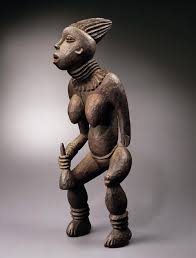India passes 20m Covid cases as calls grow for national lockdown











India passes 20m Covid cases as calls grow for national lockdown
India has passed a grim milestone of 20 million Covid-19 cases amid growing calls for the country to go into a national lockdown.
On Tuesday, India reported 357,229 new cases over the last 24 hours, while the number of deaths rose by 3,449 as a deadly wave of the virus showed no signs of relenting. Many health experts believe India’s true death toll to be five to 10 times higher than official data.
As the country continued to grapple with oxygen shortages and a lack of hospital beds and ICU facilities for coronavirus patients, as well as crematoriums overloaded with bodies, the Indian opposition leader Rahul Gandhi called for a nationwide lockdown.
“The only way to stop the spread of corona now is a full lockdown” said Gandhi on Twitter. He said the government’s “inaction is killing many innocent people”.
Many of India’s worst-hit states and cities are under regional lockdowns, including Delhi and Mumbai, but prime minister Narendra Modi has resisted imposing a countrywide lock because of the huge economic toll it would take.
India’s first nationwide lockdown, imposed in March 2020, caused a disastrous humanitarian crisis among India’s day-wage workers and pushed an estimated 75 million people into poverty.
However, India’s health system continued to be brought to its knees by the relentless surge in Covid-19 cases. On Monday, as many as 23 patients died in a hospital in the state of Karnataka when oxygen supplies ran low.
In a significant ruling, the Delhi high court announced it would start punishing government officials if supplies of oxygen allocated to hospitals were not delivered. “Enough is enough,” it said.

The capital, Delhi, meanwhile, marked its most deadly day of the pandemic on Monday, with 448 Covid-19 fatalities.
Outside the gates of Lok Nayak hospital in Delhi, which has 1,500 Covid-19 beds which are all full, the ongoing desperation of the situation in the capital was visible. Ambulances with critical patients were repeatedly turned away because there was no room.
In one ambulance lay Hasima Begum, 60, gasping for air as her oxygen levels had crashed to a deadly 30%.
“We’ve been to four hospitals already this morning but nowhere has any beds,” said her 17-year-old grandson M D Kaif. “They say she’s got maybe 10 minutes to live if we can’t get her oxygen and a bed.”
But like all the other hospitals they had been to that morning, there was no room for Begum. As the family waited outside the gates, they were presented with a consent form to sign, stating that it was not the fault the ambulance or the hospital if Begun died without admission. “We are helpless, what can we do now?” said Kaif.
As soon as one ambulance left, three others turned up in their place, all with Covid-19 patients in severe distress. Sasi Devi, 47, lay on a stretcher in the back of an ambulance. This was the sixth time her family had brought her here in the hope of admission.
“Give me poison, end this pain,” Devi rasped. But her son returned from the hospital gates, shaking his head. “No oxygen cylinder, no bed,” he said quietly. “So now we will take her home to die”.
Others waited for their dead to be returned. Priyanka Gupta, 29, sobbed as she said she had been waiting all day to reclaim the body of her mother, 57-year-old Rita Devi.
“Yesterday for six hours my mother was kept waiting outside this hospital but they would not let her in even when her oxygen fell to 19%,” said Gupta. “It was only when she was dead that they finally took her inside the hospital, and now I don’t know when I can get her body back.”
Reference: The Guardian: Hannah Ellis-Petersen in Delhi
Covid horror: China on high alert as first cases of Indian double mutation detected














Covid horror: China on high alert as first cases of Indian double mutation detected
Wu Zunyou raised concerns about the spread of the new mutation during a major announcement on Thursday. He said the "Indian variant" had been found in "some Chinese cities," fuelling calls for stricter border control.
Mr Wu, chief epidemiologist of the Chinese Center for Disease Control and Prevention in Beijing, said : "The virus has been mutating since the start of the pandemic."
He added: "Implementing containment measures is key to stopping the spread of mutant strains, and also to prevent the occurrence of new mutations."
The news sparked a wave of comments on Chinese social media platform Weibo, where users created the hashtag "Indian virus variant detected in some Chinese cities".
The strain is causing havoc in India, the new hotspot of the world pandemic, and has also triggered alarm in the UK.
Experts warn the Prime Minister's roadmap to ending lockdown restrictions could be jeopardised.
Deenan Pillay, professor of Virology at University College London, highlighted the dangers of the new variant spreading in the UK as the country prepares to ease all remaining restrictions on June 21.
He said: "Although the Government started with saying, we want to go for data be guided by data, not dates, to choose June 21, which is Midsummer's Day, as a symbolic releasing of everything is actually choosing dates not data."
Prof Pillay agreed that it was necessary to "put an asterisk" beside the date rather than regarding it as being set in stone.
He said: "Just imagine, in the same way, there are high rates of infection in India now, there will be other countries which have high rates.
"You look at the world now, globally there are as many infections as ever before going on today as there was before.
"Travel remains a major weakness of this and however much I personally would love to go abroad, you know, I think we've just got to make sure the government messages this in the right way.
"Interestingly, over the last couple of weeks, I've noticed the change in emphasis from ministers previously being pretty circumspect about travel and saying for instance we should in 2021 we should have staycations etc.
"Over the last couple of weeks I've noticed, very clearly, there is a shift towards almost an acceptance that we're going to be able to go abroad, all the talk about vaccine passports and so forth. And I think that shifted expectations to be honest and I think that raises the potential risk."
Prof Pillay pointed out that if previously uncommon variants - such as the one that emerged in India - began to spread in the UK, they would carry with them the potential to change the dynamic significantly.
Reference: Daily Express: Melanie Kaidan:
India's vaccine export ban could send shockwaves worldwide. Should the UK step in to help?














India's vaccine export ban could send shockwaves worldwide. Should the UK step in to help?
One in five doses being jabbed around the world is made in India. The country is also the largest exporter of COVID-19 vaccines to the rest of the world.
Yet, when it comes to inoculating its own people against coronavirus, the South Asian nation has barely covered a tenth of its population, and is now seeing a record number of new deaths every day.
There are fears over whether India's demand for vaccines to tackle the pandemic might impact other, often lower-income countries in their fights against COVID-19.
Why? About 30% of doses that are exported to other countries are produced in India, Sky News analysis of data from the science analytics company Airfinity shows.
The Indian government has now temporarily banned exports of vaccine to bring the pandemic under control.
A forecast by Airfinity shows that if India were to maintain its strict ban, the nation would have enough doses to fully vaccinate its entire adult population by November.
But that could lead to supply shortages elsewhere.
Sky News analysis found 35 countries have mostly relied on India for their jabs. About 98% of people receiving these doses are from low or lower-income countries.
Some of these countries have yet to receive a large portion of the doses previously agreed with India - including Bangladesh, Myanmar, Saudi Arabia, Uganda, Zimbabwe and Sri Lanka.
The disruption to supply goes further. India is also slated to produce more than 80% of 2.26 billion doses to COVAX - an alliance of 190 countries which aims to provide access to 92 lower and middle-income economies.
But with three in five people already vaccinated in the UK, there are growing calls from several scientists for vaccines to be more equitably distributed around the world.
"Some degree of vaccine nationalism is justified. Both [the US and the UK] have done a good job so far and fulfilled their moral obligations towards their own," says Dr Alberto Giubilini from the University of Oxford's Collective Responsibility for Infectious Disease programme.
He added: "Now they need to continue doing the morally right thing, which from this moment on is to share vaccines."
Dr Julian Tang, a consultant virologist at the Leicester Royal Infirmary, believes a more equitable distribution of vaccines will help prevent new variants emerging abroad.
He said: "By sending vaccines overseas to stop a virus from replicating elsewhere, you're not abandoning all care for your own population. Actually, you're securing the vaccine's efficacy."
The UK government says it is open to exports in the future.
A government spokesperson said: "The UK will be sharing the majority of any future surplus coronavirus vaccines with the COVAX scheme to support developing countries."
But the acute scarcity in vaccines has also led to many nations to seek help from Russia and China, according to a new report by the Economist Intelligence Unit.
Vaccines developed by the two nations are priced cheaper than Western jabs to target low and lower income countries but often come with political and economic strings attached.
"Pfizer and Moderna vaccines are essentially unaffordable for most developing countries," said Agathe Demarais, global forecasting director at the Economist Intelligence Unit. "Without COVAX, their only option is to turn to Russia and China."
Reference: Sky News: Carmen Aguilar Garcia and Ganesh Rao, Data Journalism Unit:Kate Garraway shares heartbreaking revelation that her husband Derek Draper can barely speak after returning home










Kate Garraway shares heartbreaking revelation that her husband Derek Draper can barely speak after returning home
Kate Garraway has revealed her husband Derek Draper can still barely talk almost a month after returning home from hospital.
Derek, 53, was taken to hospital last March after contracting coronavirus and remained there for over a year due to complications from the disease.
Good Morning Britain host Kate, also 53, has now called their two children "heroes" after they adapted their communication skills so they can converse with their father, who is still unable to speak much.
Brave Kate opened up on how daughter Darcey, 15, and son Billy, 11, have reacted to Derek's return home from intensive care after a year.
Speaking on Zoe Ball's Radio 2 show on Wednesday, she said: "He isn't really able to speak at the moment so he can't tell them off.
"I have to be the bad guy!," she joked, before admitting: "They are my heroes.
"They know instinctively how to talk to him but not ask too much from him," she continued.

Kate also added how Derek is still in need of 24 hour care, with carers visiting the family around the clock, continuing: "The hope is he will be able to progress."
The former I'm A Celebrity... Get Me Out Of Here! star also spoke to Iain Dale on LBC to promote her new book, The Power of Hope, once again singing the praises of her children.
Kate confessed that the youngsters were making the most of Derek's return by frequently making time to talk and hug their father.
She also explained that the duo are helping Derek with his recovery by making him smile in a "reassuring way" at things he would have found entertaining before he was placed in a coma last year.
The broadcaster's praise for her children comes after a challenging year, in which Derek himself "feared for his life every second".
The mum-of-two previously revealed a text Derek sent her before he was put into an induced coma, which read: "It is second after second of being locked in a mask thinking every second you're going to die. I think they now may want to put me to sleep."
She also shared further heart-breaking texts from her husband while he was on the ward, telling fans that he even planned his funeral from his hospital bed.
He said: "I want you at the funeral, but I'm not sure about the children. It is unimaginable. I literally feel like I'm drowning and every breath is my last."
Reference: OK: Samuel McManus:Articles - Most Read
- Home
- LIVER DIS-EASE AND GALL BLADDER DIS-EASE
- Contacts
- African Wholistics - Medicines, Machines and Ignorance
- African Wholistics -The Overlooked Revolution
- African Holistics - Seduced by Ignorance and Research
- The Children of the Sun-3
- Kidney Stones-African Holistic Health
- The Serpent and the RainBow-The Jaguar - 2
- PART ONE: DIS-EASE TREATMENT AND HEALTH-3
- 'Tortured' and shackled pupils freed from Nigerian Islamic school
- King Leopold's Ghost - Introduction
- PART ONE: DIS-EASE TREATMENT AND HEALTH-4
- PART ONE: DIS-EASE TREATMENT AND HEALTH-2
- PART ONE: DIS-EASE TREATMENT AND HEALTH-5
- African Wholistics - Medicine
- Menopause
- The Black Pharaohs Nubian Pharaohs of Ancient Egypt
- The Mystery System
- PART ONE: DIS-EASE TREATMENT AND HEALTH-6
Who's On Line?
We have 100 guests and no members online
Ad Agency Remote
Articles - Latest
- The Male G Spot Is Real—and It's the Secret to an Unbelievable Orgasm
- Herbs for Parasitic Infections
- Vaginal Care - From Pubes to Lubes: 8 Ways to Keep Your Vagina Happy
- 5 Negative Side Effects Of Anal Sex
- Your Herbs and Spices Might Contain Arsenic, Cadmium, and Lead
- Struggling COVID-19 Vaccines From AstraZeneca, BioNTech/Pfizer, Moderna Cut Incidence Of Arterial Thromboses That Cause Heart Attacks, Strokes, British Study Shows
- Cartilage comfort - Natural Solutions
- Stop Overthinking Now: 18 Ways to Control Your Mind Again
- Groundbreaking method profiles gene activity in the living brain
- Top 5 health benefits of quinoa
- Chromolaena odorata - Jackanna Bush
- Quickly Drain You Lymph System Using Theses Simple Techniques to Boost Immunity and Remove Toxins
- Doctors from Nigeria 'facing exploitation' in UK
- Amaranth, callaloo, bayam, chauli
- 9 Impressive Benefits of Horsetail
- Collagen The Age-Defying Secret Of The Stars + Popular Products in 2025
- Sarcopenia With Aging
- How to Travel as a Senior (20 Simple Tips)
- Everything you need to know about mangosteen
